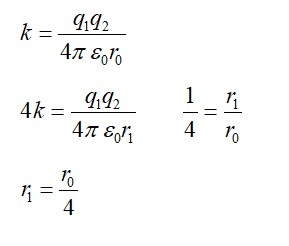13.27 Consider the fission of by fast neutrons. In one fission event, no neutrons are emitted and the final end products, after the beta decay of the primary fragments, are and . Calculate Q for this fission process. The relevant atomic and particle masses are
m( =238.05079 u
m( ) =139.90543 u
m( = 98.90594 u
13.27 Consider the fission of by fast neutrons. In one fission event, no neutrons are emitted and the final end products, after the beta decay of the primary fragments, are and . Calculate Q for this fission process. The relevant atomic and particle masses are
m( =238.05079 u
m( ) =139.90543 u
m( = 98.90594 u
13.27 In the fission of , 10 particles decay from the parent nucleus. The nuclear reaction can be written as:
It is given that:
Mass of a = 238.05079 u
Mass of a =139.90543 u
Mass of a = 98.90594 u
Mass of a neutron , = 1.00865 u
Q value of the above equation,
Q =
Where
m' = represents t
Similar Questions for you
Q = [4 *4.0026 – 15.9994] *931.5 MeV
Q = 10.2 MeV
Taking an Exam? Selecting a College?
Get authentic answers from experts, students and alumni that you won't find anywhere else.
On Shiksha, get access to
Learn more about...

Physics Ncert Solutions Class 12th 2023
View Exam DetailsMost viewed information
SummaryDidn't find the answer you were looking for?
Search from Shiksha's 1 lakh+ Topics
Ask Current Students, Alumni & our Experts
Have a question related to your career & education?
See what others like you are asking & answering


